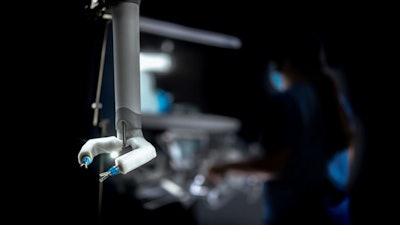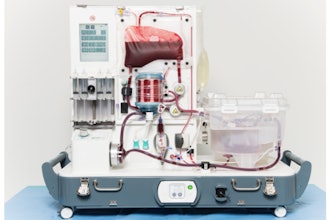
Virtual Incision announced th FDA has granted marketing authorization of the MIRA Surgical System (MIRA), the world’s first miniaturized robotic-assisted surgery (miniRAS) device, for use in adults undergoing colectomy procedures. The device was submitted via the FDA’s De Novo Classification process, a rigorous pathway designed to classify novel medical devices with no current legally marketed predicate. FDA authorization was based in part on findings from the company’s U.S. Investigational Device Exemption (IDE) clinical study. The announcement was made by Virtual Incision’s president and chief executive officer, John Murphy, at the SAGES 5th Annual Next Big Thing Innovation Weekend in Houston.
Minimally invasive surgery (MIS), a type of surgery that involves smaller incisions, has transformed the surgical care landscape and patient outcomes through decreased pain, reduced complications, and shorter recovery time. The introduction of robotic-assisted surgery has further expanded the use and effectiveness of MIS for complex procedures, offering surgeons more precision and control than what is possible with conventional techniques. Despite its advantages, roughly 90 percent of U.S. operating rooms (ORs) are still without access to the technology, most often due to complex logistics such as dedicated operating room space, specially trained staff, added steps during setup and turnover, and a substantial cost for the equipment. The “in-a-tray” form factor of miniRAS has the potential to overcome these challenges and could impact millions of U.S. patients each year.
MIRA’s innovative tray-to-table design could offer healthcare facilities the advantages of robotic surgery without requiring them to organize the OR around the device, a current challenge of existing mainframe surgical robots. MIRA’s compact, approximately two-pound (less than one kg) framework is portable and designed to minimize setup time, which could enable any OR to be robot ready within minutes.
Virtual Incision will begin commercialization of MIRA through its First Access Program in centers to be selected across the United States. The company will ramp up MIRA’s production and expand to additional sites over time.
MIRA’s broader commercialization and expansion of its roadmap for future indications includes gynecology, general surgery, urology and other soft tissue and solid organ surgery. Studies of MIRA in gynecological procedures are planned in 2024. Additionally, a new iteration of the technology tailored to general surgery is in design and expected to be used in a first-in-human study outside the U.S. later this year.






















